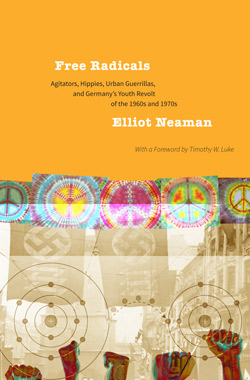During his 2004 presidential campaign, John Kerry stated, “We have to get back to the place we were, where terrorists are not the focus of our lives, but they’re a nuisance.” Though this statement was widely lampooned on right-leaning American media outlets, it is worth examining: swimming pools, and choking on one’s food, are more deadly, all things being equal, than terrorism. Yet terrorism produces a “conceptual helplessness,” in which, “We seem to be left with no good choices. To call what happened on September 11 evil appeared to join forces with those whose simple, demonic conceptions of evil often deliberately obscure more insidious forms of it. Not to call the murders evil appeared to relativize them, to engage in forms of calculation that make them understandable—and risked a first step toward making them justifiable.”
|
Ten characteristics of the patterns of ethnic conflict in Europe—the way they are reflected in media and culture. They serve as the key to conceptual understanding of the nature of confrontation, aggression in communication in the public sphere in Europe at present, and erosion of democratic values “From the summer until November 1969, Baader and Ensslin threw themselves into their project with enthusiasm and were soon put in charge by the naïve and often intimidated authorities. Under Baader and Ensslin’s guidance, around forty girls and boys (nicknamed ‘picos’) fled Staffelberg, and runaways from various other juvenile centers soon joined them. They found sanctuary in various and sundry apartments in the Frankfurt area, arranged by local activists. Baader and Ensslin staged ‘go-ins’ in the offices of the nervous bureaucrats who ran the homes and succeeded in convincing the experts to make changes to the living conditions before the young residents would promise to return. Baader and Ensslin were given power to manage the five DM cash allotment for each youth, which turned out, unsurprisingly, to be a bad mistake…” Elliot Neaman’s Free Radicals: Agitators, Hippies, Urban Guerrillas and Germany’s Youth Revolt of the 1960s and 1970s is now available for purchase in our online store. Save 20% on the list price by using the coupon code BOOKS20 during the checkout process. Also available in ebook format at Amazon.com (Kindle) and Barnes & Noble (NOOK). Free Radicals
Elliot Neaman’s Free Radicals presents a comprehensive panorama of the West German youth revolt in the 1960s, as well as its subsequent fragmentation and descent into terrorism in the 1970s. Neaman argues that the activists of the 1960s fundamentally misconstrued the nature of the young German republic, conflating it with earlier problematic German polities, and offered hazy world-shattering utopias to replace it based on artificial historical comparisons. The student radicals at first were swept along by liberalizing forces, but then made a decisive turn against reform in favor of an aggressive rejection of the existing order. Coming on October 1st: Elliot Neaman’s Free Radicals: Agitators, Hippies, Urban Guerrillas and Germany’s Youth Revolt of the 1960s and 1970s. Pre-order your copy in our online store, and we will ship it once it is available. Save 20% on the list price by using the coupon code BOOKS20 during the checkout process. Free Radicals
Elliot Neaman’s Free Radicals presents a comprehensive panorama of the West German youth revolt in the 1960s, as well as its subsequent fragmentation and descent into terrorism in the 1970s. Neaman argues that the activists of the 1960s fundamentally misconstrued the nature of the young German republic, conflating it with earlier problematic German polities, and offered hazy world-shattering utopias to replace it based on artificial historical comparisons. The student radicals at first were swept along by liberalizing forces, but then made a decisive turn against reform in favor of an aggressive rejection of the existing order. Mina Ahadi is an Iranian exile, living in Germany. She opposed the Shah as well as Khomeini. In 1990 she fled to the West. An adamant secularist, critical of all religion and therefore an opponent of Islamist politics, she does not appear to distinguish between “Islamic” and “Islamist” in her prose. She identifies herself as a communist, she is a leader in the “Central Committee of Former Muslims,” and she is a principled defender of human rights. In two recent open letters, she stakes out positions that not only provide insight into contemporary German political discussions but that are directly relevant to U.S. debates as well. |
||||
|
Telos Press Publishing · PO Box 811 · Candor, NY 13743 · Phone: 212-228-6479 Privacy Policy · Data Protection Copyright © 2025 Telos Press Publishing · All Rights Reserved |
||||



